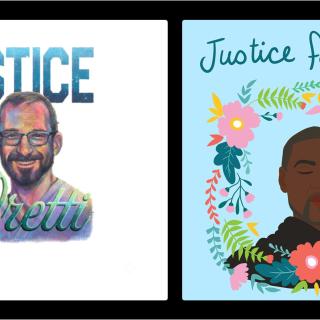Advertisement
In many ways, the story of the Keystone XL pipeline project reads like a true crime novel. The project has a long, sordid history that’s rife with corruption.
The Keystone XL was first proposed in September 2008, as oil companies sought to transport more than 800,000 barrels of crude oil through Nebraska, South Dakota, and Montana every day. The Obama Administration repeatedly quashed the Keystone plans despite efforts to fast-track it, declaring that the project did not serve the national interest.
According to AP, President Obama was vehemently opposed to Keystone. In November 2015, he reportedly said that, “America is now a global leader when it comes to taking serious action to fight climate change. And frankly, approving this project would have undercut that global leadership.” Unfortunately, Obama’s successor felt differently in regards to both Keystone and the Dakota Access pipeline. Just a few days after taking office in January 2017, President Trump signed executive orders approving both pipeline projects despite the objection of vocal protesters.
Yet, in the end, it seems as though those who oppose the pipeline due to its perceived environmental impact were correct. In late October 2019, Keystone sprang a leak, ultimately spilling more than 383,000 gallons of oil in the wetlands of North Dakota. Despite this atrocity, states are more concerned about the protesters, even proposing bills that would make the act of protesting a pipeline a felony rather than a misdemeanor.
In our current era of lawlessness, where the interests of corporations are prioritized over those of the general public, it's imperative to know your rights as a citizen. Further, you should consider the best actions to take against environmental injustice.
The Big Business of Climate ChangeIn many ways, Keystone protesters are somewhat of a red herring — as state governments question the legality of the protests themselves, it becomes easier to turn a blind eye from a modern ecological disaster. After all, oil helps to line the pockets of America's elite: according to data collected by Statista, the U.S. oil and gas industry brought in more than $180 billion in 2018 alone. With revenue numbers like that, it's easy to see why state governments are willing to look the other way when it comes to oil spills.
Yes, big oil is a massive money-maker. But in the realm of environmentalism, the opposite is also true: damages related to climate change are extremely costly, and American taxpayers are footing the bill. Over their lifetime, a single individual will shell out an estimated $126,000 to pay for the negative effects of climate change. The news isn’t all bad, however; you can offset the money you’re required to pay for climate change-related damage by making smart, green purchases.
Spending money on environmentally friendly products and socially conscious companies may not seem significant, but it’s actually a viable form of protest. By putting your hard-earned money towards companies that are committed to sustainability, you’re essentially taking money from the pockets of big oil, big pharma, and other capitalist industries that eschew environmentalism in favor of profit. If you’re a business owner, you can even take your consumer activism a step further with social impact investing. By investing in companies and startups that generate social and/or environmental benefits, you can help make the world a better place. For instance, in recent years, nearly $35 billion has been invested in social enterprises attempting to fix environmental concerns.
Keystone, Standing Rock, and ActivismBut what about other forms of protest? What happens when you feel that simply being more mindful of your spending habits isn’t enough to foster true change? Activism and protest are effectively the cornerstones of America, from the “hippies” who marched in protest of the Vietnam War in the late 1960s to the patriots who started the Boston Tea Party in 1773.
Unfortunately, it’s the most vocal activists who risk jeopardizing their personal freedom just by standing up for what they believe in. For instance, the “water protectors” who fought against the Dakota Access pipeline were repeatedly taken into custody by law enforcement officials in North Dakota. According to The Guardian, nearly 700 protestors had been arrested as of February 2017, with 76 people taken into custody in a single day just after President Trump took office.
To better corral the Standing Rock protestors, federal forces joined state officials in arresting and charging those who allegedly broke the law. Standing Rock has now spawned a number of anti-protest bills, which permit law enforcement to charge pipeline protestors with felonies rather than misdemeanors. South Dakota is just one of seven states with this type of legislation in place, and if you’re protesting in those areas, you should be aware of the possibly severe repercussions of your actions.
Legal Considerations for ProtestersRecently, advocates of social justice have been keeping a watchful eye on the fate of protesters around the globe. In Hong Kong, for instance, widespread unrest continues and arrests are commonplace. So if you do decide to physically protest the Keystone Pipeline, be prepared for the possibility of arrest. However, with help from a knowledgeable attorney, you may only spend a few days in jail, which was the ultimate fate for many Standing Rock protesters.
If you're a first time offender, things may seem intimidating and scary, but there are services available that may lead to your charges being dropped. Your attorney or public defender will help you decide if a guilty or not guilty plea is your best choice. He or she will also discuss the possible consequences for first time offenders, which could include fines, probation, or community service.
Ultimately, however, you need to decide if fighting against injustice and environmental hazards is worth the risk. Fighting the Keystone pipeline and similar projects may be as easy as conscious spending, and investing in sustainability and social justice.



